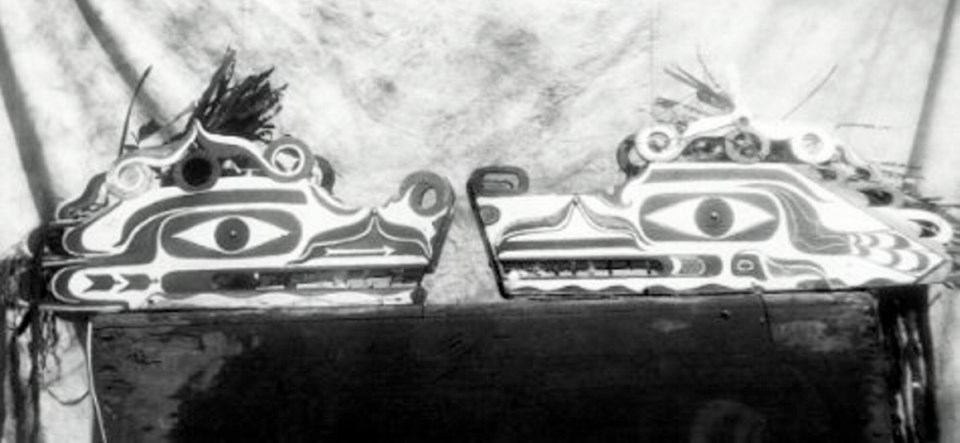An unknown collector now possesses two sacred cedar masks, passed down maternal lines of a Hupacasath family for more than a century, and some aboriginal leaders want B.C. law changed to protect other First Nations families.
“Collective ownership of cultural property is not addressed in the Heritage Conservation Act,” said Judith Sayers, adjunct law professor at the University of Victoria and former chief of the Hupacasath First Nation in Port Alberni.
That means B.C. law is at odds with First Nations rules, said Sayers, a member of a working group, put together by the First Nations Leadership Council and the province in 2006, to look at aboriginal heritage conservation.
“I think the law has to make provision for collective ownership by families. … It needs to be in a discussion paper for amendments to the Heritage Conservation Act,” Sayers said.
The province is cautiously supportive of reviewing parts of the law.
“If the First Nations Leadership Council is supportive of continued work through the working group, government is prepared to identify further potential changes to portions of the Act, subject to public consultation and legislative approval,” said a statement from the Forests Ministry.
Such a change could affect purchases by museums as well as individuals, Sayers said.
The Royal B.C. Museum did not have anyone available to comment Monday.
However, even changes to the law will not restore the colourful sea serpent masks to the Sayers and Hamilton families, although replacement headdresses are being offered in the hope that the buyer will come forward.
The masks, known as hinkeets, were sold in November by Seahawk Auctions of Vancouver and, because they were brought in for sale by a family member who had documents showing they had been willed to her, there was nothing to stop the sale.
But the male and female masks, used during potlatches and ceremonies, when specific dances and songs are performed, were family property and the woman who took them to the auction house was supposed to keep them safe.
“Someone is appointed as keeper of the regalia and their job is to make sure they are used properly,” Sayers said.
The woman appointed as keeper, who received $4,000 for one mask and $22,500 for the other, was well-drilled in protocol and knew what she was doing, but she is now in India and cannot be contacted, Sayers said.



